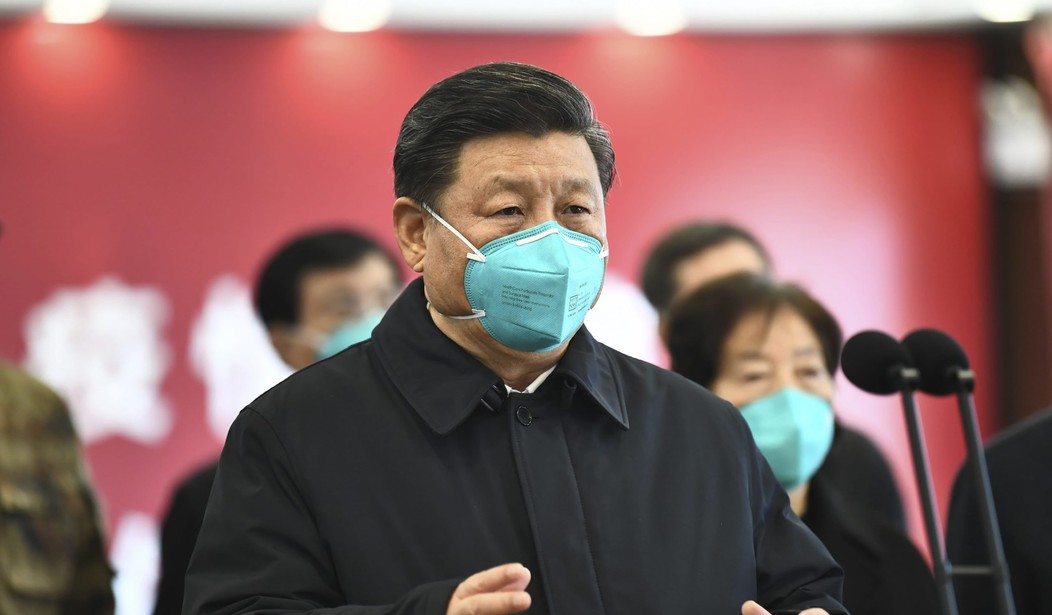When Chinese doctors started sharing information about a new SARS-like coronavirus last December, the Chinese Communist Party reprimanded them, called them in for questioning, and ordered labs to stop testing samples and to destroy existing samples. Wuhan was not put on lockdown until January 23, almost a month after officials learned of the new virus. As the disease spread around the world, China delayed any policy response for three weeks. Had authorities acted sooner, they could have reduced the spread by up to 95 percent, according to a recent study.
China’s denial and delay enabled the spread of a deadly virus that has crippled the world, infected over 1 million people, and claimed at least 50,000 lives. Wuhan, where the virus is believed to have originated, has reported no new cases — reportedly because it stopped testing altogether, likely in an effort to keep the official numbers down. The Chinese Communist Party has blamed the U.S. for the virus, pushing the propaganda narrative that even mentioning the coronavirus’s origins in China is racist. China’s response to the coronavirus makes the Soviet Union’s response to Chernobyl look good by comparison.
Yet western media and academics seem all too keen on taking China’s word for it. On Tuesday, a professor at the London School of Economics went so far as to call the coronavirus the “opportunity of the century” for the Middle Kingdom to cement its place as a global power and win the world over to its way of life.
“I think this is the opportunity of the century for China to build trust in the world, which it has found so difficult to come by as a rising nation, and to rebuild its international image — China doesn’t (want to) waste an opportunity like this,” Keyu Jin, associate professor of economics at the London School of Economics, told CNBC’s “Squawk Box Europe” on Tuesday.
Jin praised China for supporting the European debt market to elevate its position during recent economic crises. “We’ve seen it solidify and make these ties stronger and more mature,” she said. “And even though there has been a lot of tension between the U.S. and China recently, I believe the Chinese stance and direction is still to come out as a country that will help the U.S. rather than be a bystander — it will guarantee critical medical supplies and equipment, and help whoever needs it, especially developing countries.”
“This is their chance, they’re looking at the long-run game,” Jin added.
Beijing may not want to “help” the U.S. just yet. The Netherlands, Spain, and Turkey have raised the alarm that the medical supplies sent from the Middle Kingdom are defective.
Perhaps the coronavirus pandemic provided China an opportunity to gain the world’s trust, but it squandered that opportunity from the get-go.
Sadly, many westerners believe that China has nipped coronavirus in the bud and they want to learn from the communist country how best to combat the Wuhan plague. As Richard Fernandez warned, the Middle Kingdom’s invasive AI-powered surveillance systems may seem tempting to westerners hankering for security. In some cases, just getting into your apartment or workplace requires scanning a QR code, writing down your name, ID number, temperature, and recent travel history. WeChat and Weibo have hotlines for people to report on their sick neighbors, while Chinese companies use facial recognition technology that can detect elevated temperatures in a crowd or flag citizens not wearing a face mask.
Some of the high-tech solutions sound promising until you think about the implications of them. Apps use the personal health information of citizens to alert others of their proximity to infected patients. This sounds nifty, but it would turn people into tech pariahs — and the potential for abuse is staggering.
I have long covered the nefarious activities of the Southern Poverty Law Center (SPLC), which weaponizes its noble civil rights history to tarnish the reputations of its political opponents. The SPLC has petitioned Big Tech companies to blacklist members of accused “hate groups,” attempting to make them pariahs by comparing them to the Ku Klux Klan. Some credit card companies have refused service to individuals due to their connection with SPLC-accused “hate groups.”
Imagine if the SPLC were put in charge of a social credit score system like the one used in China: a system where various forms of freedom rely on a person’s trustworthiness — or popularity, or ties to the Chinese Communist Party. A trustworthy, reliable hard worker may receive demerits due to his unpopular opinions, and find himself losing not just popularity but freedom.
Westerners love freedom too much to surrender it to such a system, but a scare like the coronavirus, if properly managed by the advocates of AI-powered central planning, could push them one step closer to making peace with the surveillance state. Americans surrendered some freedoms in areas like airport security after the September 11 attacks, and they could be convinced to give up some more in the wake of the coronavirus.
While the pro-Chinese blather spread by academics like Keyu Jin may seem harmless enough, it serves the purpose of eroding westerners’ resolve against this Chinese AI surveillance apparatus. Jin may intend only to help China’s reputation by papering over its horrendous mishandling of the virus, but in the grand scheme of things, her message might be quite dangerous.
When it comes to setting the record straight and correcting Chinese propaganda, there’s more than just truth at stake: freedom of movement and even freedom of thought may hang in the balance.
Tyler O’Neil is the author of Making Hate Pay: The Corruption of the Southern Poverty Law Center. Follow him on Twitter at @Tyler2ONeil.









Join the conversation as a VIP Member